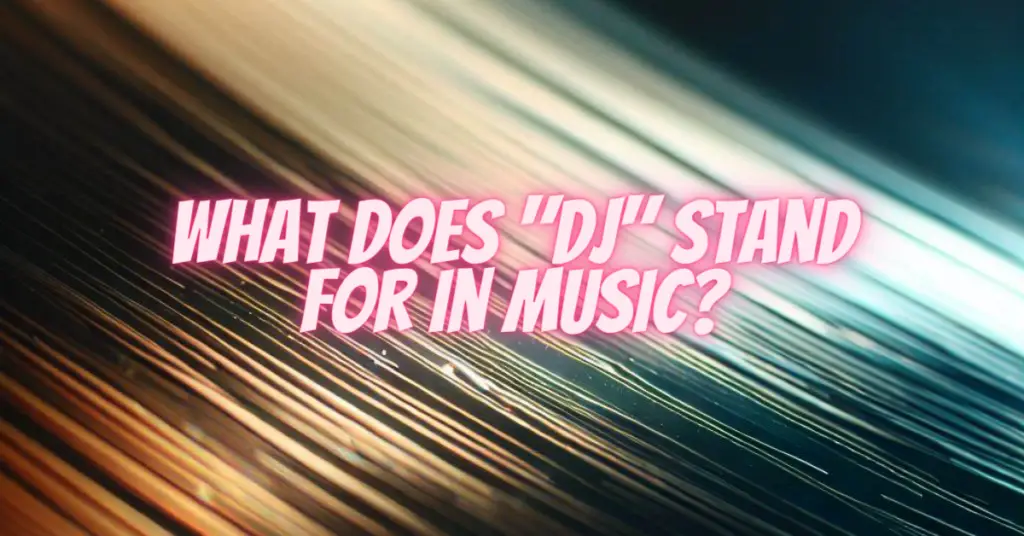In the electrifying world of music, the term “DJ” holds a special place, often associated with vibrant parties, dance floors pulsating with energy, and the seamless fusion of beats that move the soul. But what does “DJ” stand for, and what exactly is the role of a DJ in the realm of music? In this article, we will explore the origins and significance of the term “DJ,” shedding light on the artistry and skill that DJs bring to the music industry and entertainment world.
1. DJ: The Definition:
“DJ” stands for “Disk Jockey.” Historically, the term originated in the era of vinyl records, where radio presenters or individuals responsible for playing music in clubs and events would manipulate records on turntables to create a continuous flow of music. DJs were initially responsible for “jockeying” or handling the vinyl disks, selecting tracks, and blending them seamlessly to maintain a rhythmic and engaging atmosphere for the audience.
2. The Evolution of DJing:
With the advent of digital technology, DJing has evolved significantly. DJs now utilize various equipment such as turntables, CD players, and software-based setups to mix and manipulate music. Digital audio files and software platforms have replaced vinyl records, allowing DJs to access an extensive library of tracks, samples, and effects instantly.
3. The Art of DJing:
Being a DJ is more than just playing music; it’s a true art form. Skilled DJs possess an innate sense of rhythm, an excellent ear for musical harmonies, and an understanding of crowd dynamics. They curate playlists tailored to the audience, seamlessly transitioning between tracks, creating mashups, and infusing creative elements such as scratching and beatmatching to enhance the overall experience.
4. DJing in Different Genres:
DJs play a pivotal role across various music genres, including electronic dance music (EDM), hip-hop, techno, house, and more. In each genre, DJs contribute to the development of the music by discovering new tracks, remixing existing ones, and showcasing their unique style and interpretation.
5. Live Performances and Festivals:
DJs are often the stars of music festivals, clubs, and live events. Their performances involve more than just playing tracks; they create an immersive experience through elaborate light shows, visuals, and stage presence, transforming music into a multisensory journey for the audience.
6. The Rise of Celebrity DJs:
In recent years, the popularity of DJ culture has given rise to celebrity DJs who have gained fame and recognition globally. These artists, often producers in their right, blend genres, experiment with sounds, and collaborate with other musicians, expanding the boundaries of music and introducing audiences to innovative sonic landscapes.
Conclusion
In the intricate tapestry of the music industry, DJs stand as maestros, weaving together melodies, rhythms, and beats to create unforgettable auditory experiences. Beyond just playing songs, DJs shape the way we dance, feel, and connect with music. From packed dance floors to massive festivals, they inspire us to move, groove, and celebrate the universal language of music. DJs embody the spirit of innovation and creativity, constantly pushing the boundaries of what’s possible, ensuring that the world of music remains vibrant, dynamic, and ever-evolving.


